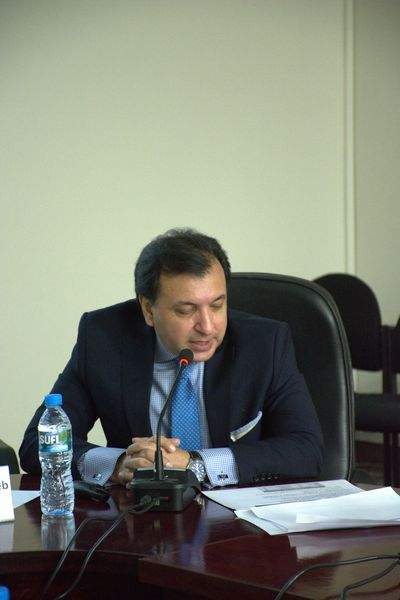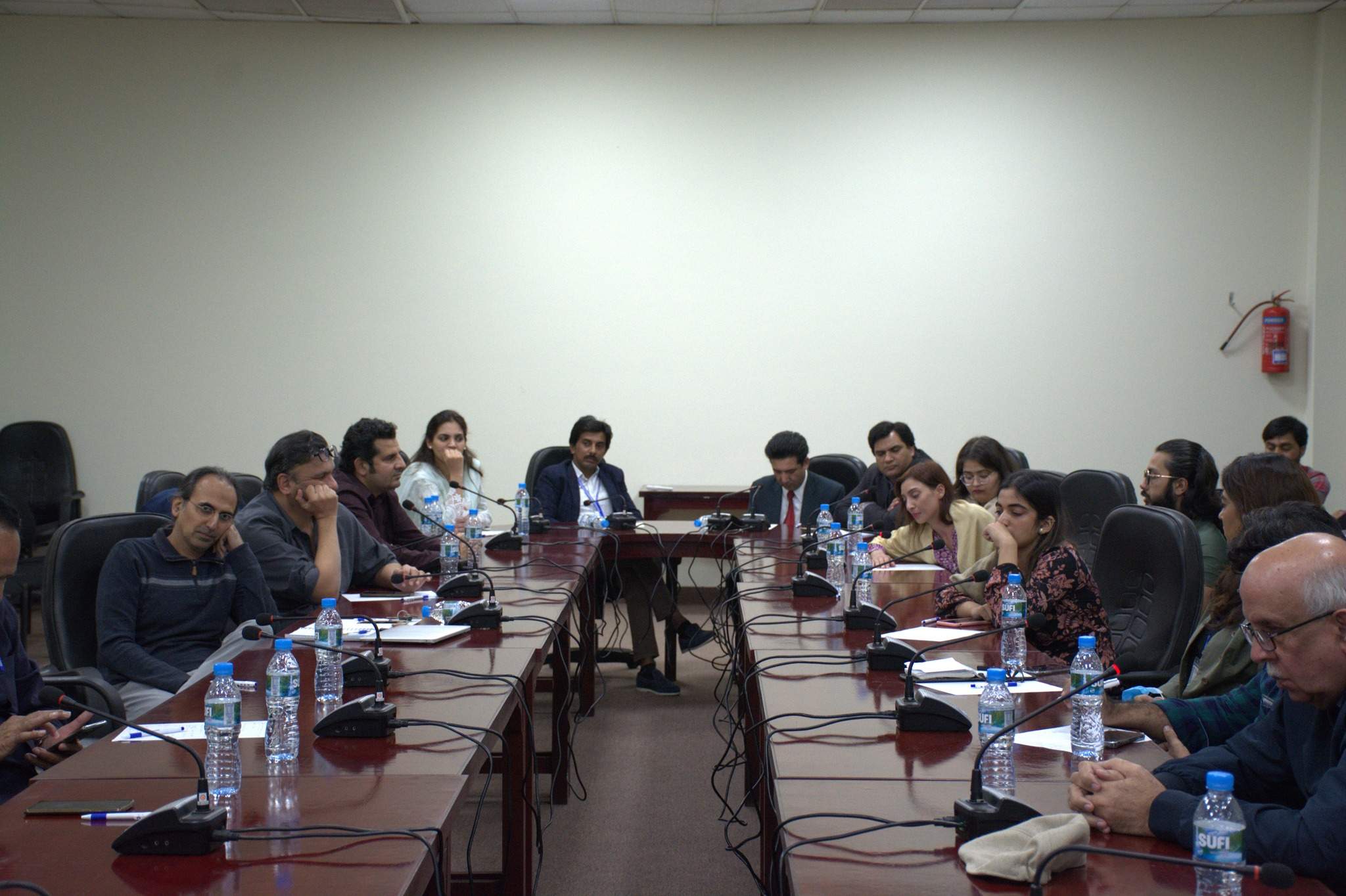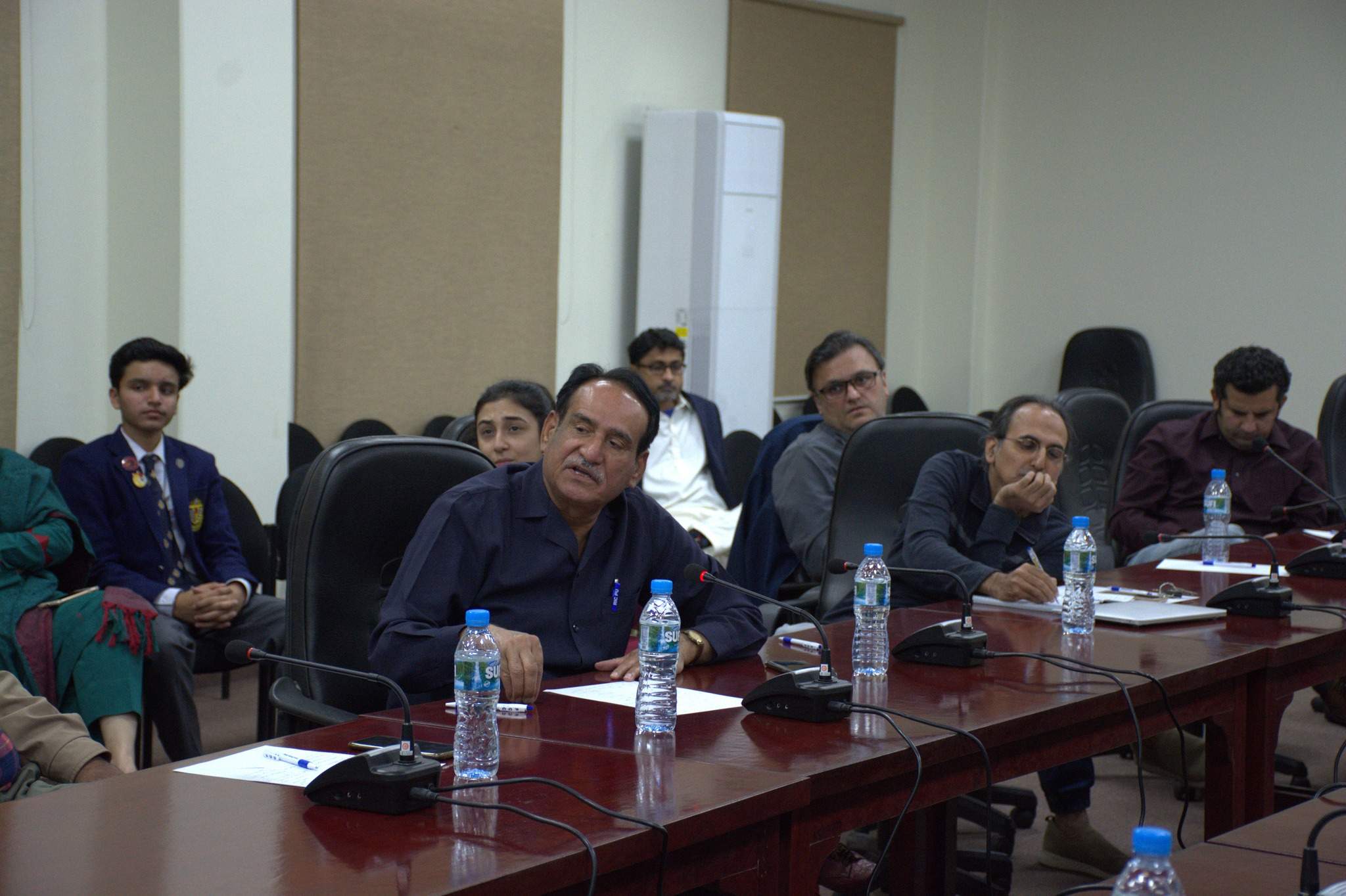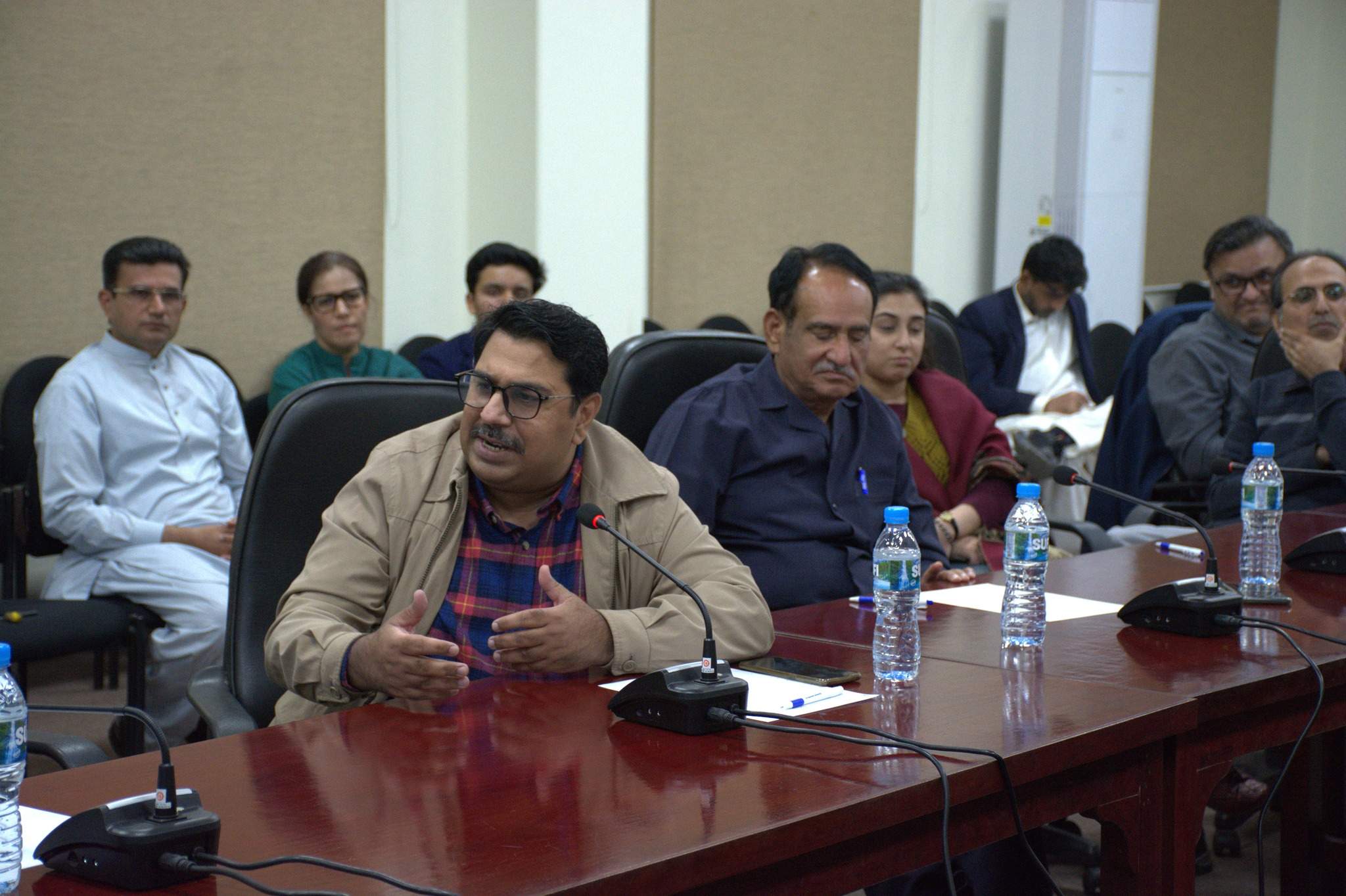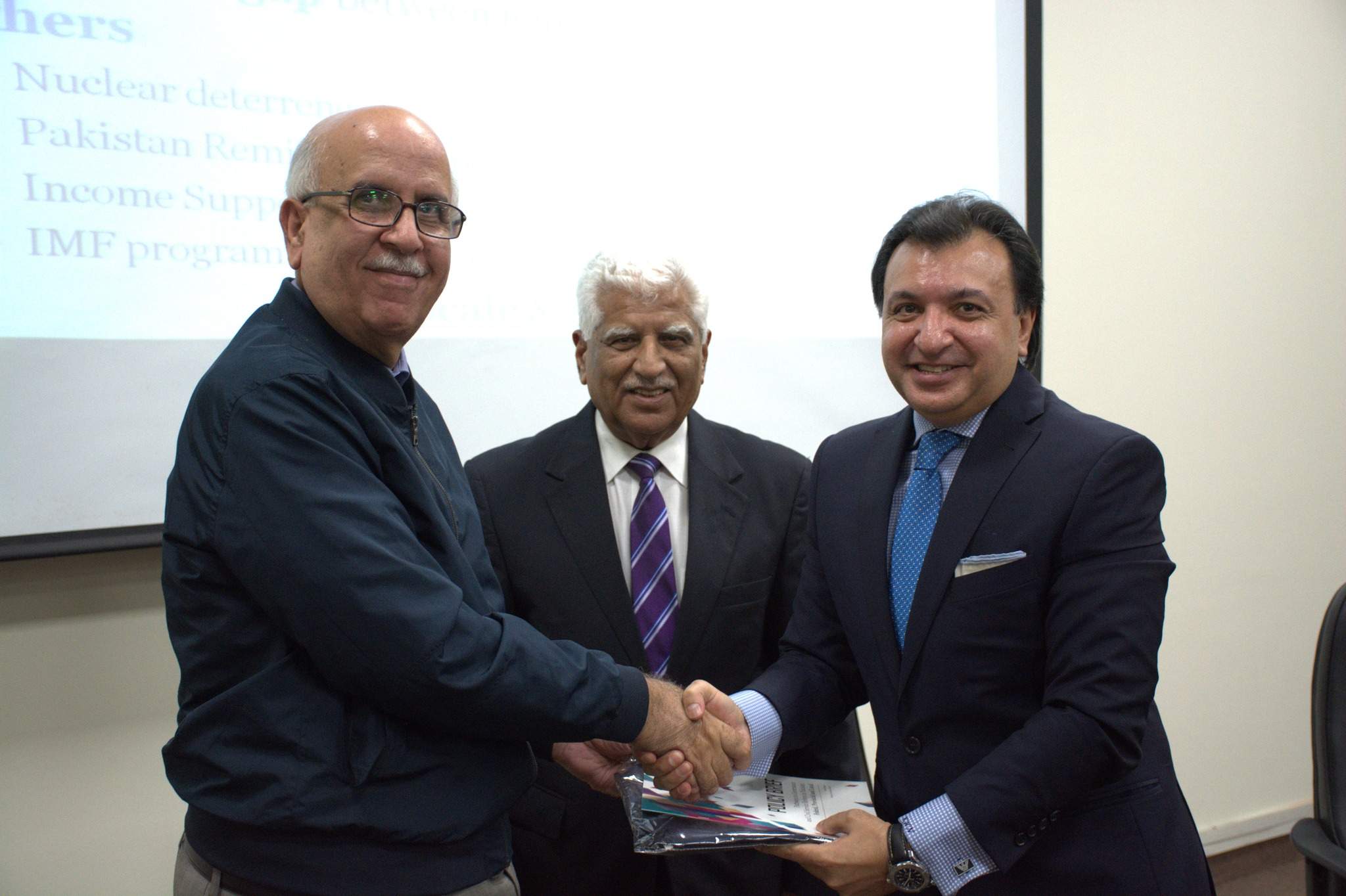
Building Economic Resilience during an Era of Political Instability
Seminar
Past Event
On Tuesday, 15th November 2022, Dr. Khaqan was invited to The Centre for Public Policy and Governance (CPPG) for a seminar on “Building Economic Resilience During an Era of Political Instability”.
Dr. Khaqan is a macro-economist with interest in public policy and finance. He is also former advisor, Ministry of Finance, and Head of Implementation & Economic Reforms Unit with expertise in economic coordination, fiscal policy, structural and budgetary reforms, energy sector, privatization and management. The seminar was moderated by Dr. Saeed Shafqat, Founding Director & Professor CPPG.
Dr. Khaqan began his presentation by providing case studies of different economies that have managed to alter their economic trajectory within a generation. There are several examples from the Asian Tigers for instance that indicate how mass poverty can be reduced and economic development achieved, within a generational time period. Using data and evidence he used a ‘constructive diagnostic’ approach to develop an understanding of successful ‘one generation transformations’ globally. Most of these economies depended on high economic growth to tackle chronic poverty levels and graduate to middle-income and then high-income countries.
He explained how for countries like Pakistan, ‘niche’ reforms that are focused, well-targeted at specific outcomes and led by specialists can help build economic resilience. BISP, the management of the Covid-19 pandemic, or more recently, our exit from the FATF list are examples of such niche reforms in Pakistan that have been successful. If we aim to carry out drastic, nation-wide restructuring then it is more likely the reforms will be unsuccessful as historically these have not worked. We need focused programs that tackle specific economic issues, where empowered technical experts can help achieve a set of targets/objectives. These niche reforms can build momentum and can turn marginal successive progress into sustained development.
He further explored the area of imports and exports and expressed that neither of them is bad but the inability to create a balance between them creates problems for Pakistan. Currently, our import expenditures are inefficient and are not balanced by value-added exports. We import raw materials that could be produced locally while our exports are not globally competitive–even our products with comparative advantage are dominated by more competitive economies. Our exports of cotton, wheat and sugarcane are significant examples. A major reason for this are low levels of economic productivity in Pakistan, much of which can also be related to cultural, behavioral and attitudinal issues in addition to technological and human resource constraints.
Moving on he shared the ineffectiveness of external aid and how it not only weakens institutions, particularly when the aid is tied to certain benchmarks. If we continue to rely on external aid and programs such as those delineated by the IMF, without developing our own, organic reforms, we will continue to lose. He went ahead and explained the failures of what he terms ‘an existential approach’ to development in Pakistan. Such an approach lacks elements of strong fiscal frameworks, characterized by weak tax policies, an over reliance on aid and an inability to simultaneously achieve structural reforms. He highlighted how for the right kind of reform, new technology adoption is needed across sectors but also at planning, training and recruiting levels in Pakistan. This will also help in reducing the number of unnecessary ministries and help us move towards greater productivity. Dr. Khaqan argued that focusing on agricultural productivity should be our top-most priority as this sector can really help Pakistan achieve grown with development. He highlighted that a ‘Constituency of Reforms’ is the need of the hour in Pakistan and that it can lead to stability within a small span of time. This entails that policy makers, implementers but also individuals, share the responsibility of making Pakistan more productive. In this context, Dr. Khaqan spoke about the importance of the energy sector which is the future of Pakistan. Without addressing our energy sector and its challenges, we cannot expect to make progress. Incentivising conservation is necessary, but so is practicing it at a household level.
The session was followed by a very energetic question and answer session where the faculty and students got a chance to ask questions related to different economic policies in the country. Many were concerned about the issue of political will, without which no reform agenda can be achieved. A technocratic form of governance can be beneficial but only if it is representative of the will of the people and is led by politicians who are ready to invest in public service delivery.
During the session, Dr. Shafqat also emphasized the importance of improving the state’s capacity in terms of strengthening the bureaucracy as an institution which is vital for public administration and economic policy to be successful. The bureaucracy is an agent of change, and investing in the training, progress and innovative capabilities of the institution is sine qua non to effective public service delivery and human development. The situation can be improved if all stakeholders come to the table, engage with each other and together develop a narrative of sustainable growth with economic stability. The session was concluded by a warm thank you to the guest speaker and closing remarks by Dr. Shafqat.


